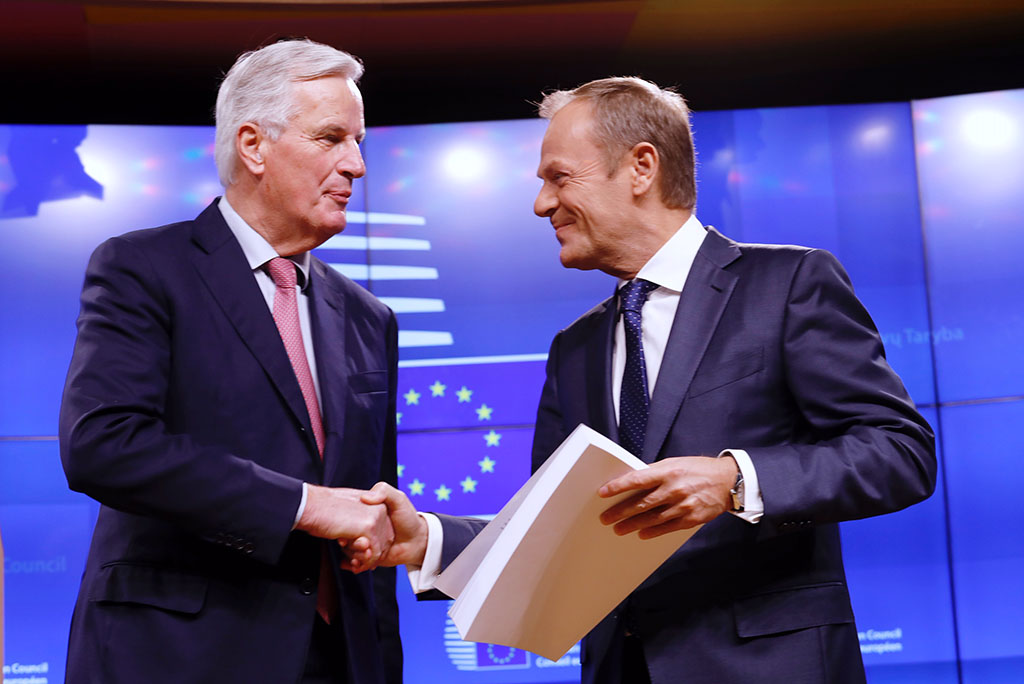
Perhaps the draft Brexit agreement reached by the UK and EU negotiators is the best possible under the circumstances, as both Theresa May and Michel Barnier have claimed. More accurately it could be said to be the least bad because –as pointed out by Donald Tusk, President of the European Council– it has been an exercise in damage limitation in which both sides –the UK and the EU– lose out. Worse still, in a scenario that cannot yet be ruled out, would be no agreement at all and a messy exit on 29 March 2019 –although partial temporary aspects could be negotiated to prevent complete disarray–. The latter would be economic suicide for Britain and inflict serious harm on the 27, something desired by no-one. But the agreement on the table is a bad deal nonetheless, certainly for London, which faces what Rafael Behr has called an ‘inferior future’. Because, paradoxically given that Brexit aspired to the opposite, it will to lead to the UK losing sovereignty, rather than sharing it and strengthening it through membership of the EU. This has been understood both by the most dyed-in-the-wool Brexiteers as well as, of course, by the Remainers.
The need to avoid re-establishing a hard border between Northern Ireland and the Republic while at the same time preserving the UK’s territorial unity as a single trading entity has forced London to accept remaining in the customs union with the EU, over which the Brussels and Luxembourg institutions will continue having the final word, in addition to having a not inconsiderable say as to how it will be regulated. London will have to accept EU rules and ultimately submit to the European Court of Justice. ‘Non-regression clauses’ will prevent Britain from lowering its standards on social, employment and environmental issues, among others. Brussels has even secured the key to whether they remain beyond the transition period, which runs up to 2020 but may be extended if no other solution is found to the Irish question. It could even be a perpetual customs union, a de facto Brexeternity that would moreover hinder London’s efforts to negotiate trade deals with third-party countries. The financial-services industry based in the City, so vital to the British economy and accounting for more than 10% of GDP, would be in a half-way house, subject to a system similar to that applicable to US and Japanese institutions.
Recently the expression ‘vassal state’ has re-emerged in the UK, in reference to submission to Brussels. The irritation of the Brexiteers is hardly surprising, although they should have known from the outset that leaving pointed in that direction. Nor does the agreement satisfy the Remainers, who feel that all the trouble could have been avoided. There is a feeling of failure in the UK that some compare to the Suez fiasco in 1956, which dispelled the illusion of British and imperial might. However, a feasible agreement would never have satisfied either party anyway. That has been May’s skill, although she still needs Parliamentary approval, which is by no means assured judging from the debate in the House of Commons on 15 November. The Prime Minister will be banking on her leadership and a very Thatcher-like TINA (There Is No Alternative). If she fails to pull it off she will either fall or be forced to go to the polls from which, as things are, Labour would emerge victorious (hence its interest in prompting a general election). The Labour Party’s position on Brexit remains vague but it does not rule out the possibility of a repeat referendum, although it avoids using the term. That, rather than the rebellion raging in the Tories’ own ranks, would be the most difficult scenario for May and for Brexit.
It has been no easy task for Britain’s negotiating team. The EU was in a position of strength and could count on the unity of the 27 and of its powerful institutions. London has had to deal with only a single counterpart over the years, Barnier, who has skilfully conducted extremely complicated talks and rejected from the outset splitting up the four freedoms on which the EU is based: the movement of workers, capital, goods and services. The EU maintains its sovereignty vis-à-vis the UK. It has allowed Madrid to negotiate a reasonable agreement on Gibraltar, which will have to be dealt with in more detail in the final arrangement governing the UK’s relations with the EU, and Cyprus to negotiate on the British military bases on the island. And, above all, it has defended Irish interests and the preservation of the peace process in Northern Ireland. It has made clear how costly it is to split away and try to gain greater sovereignty, when in fact it is sovereignty that has been forfeited. But the EU also loses out from Britain’s withdrawal: in terms of geographic, demographic, economic and military significance, despite close relations with the UK being expected to be maintained on matters of internal and external security. It would be worse for the EU –including Spanish interests– if there were no deal. Nothing is yet assured and we are not yet safely off the Brexit rollercoaster.


